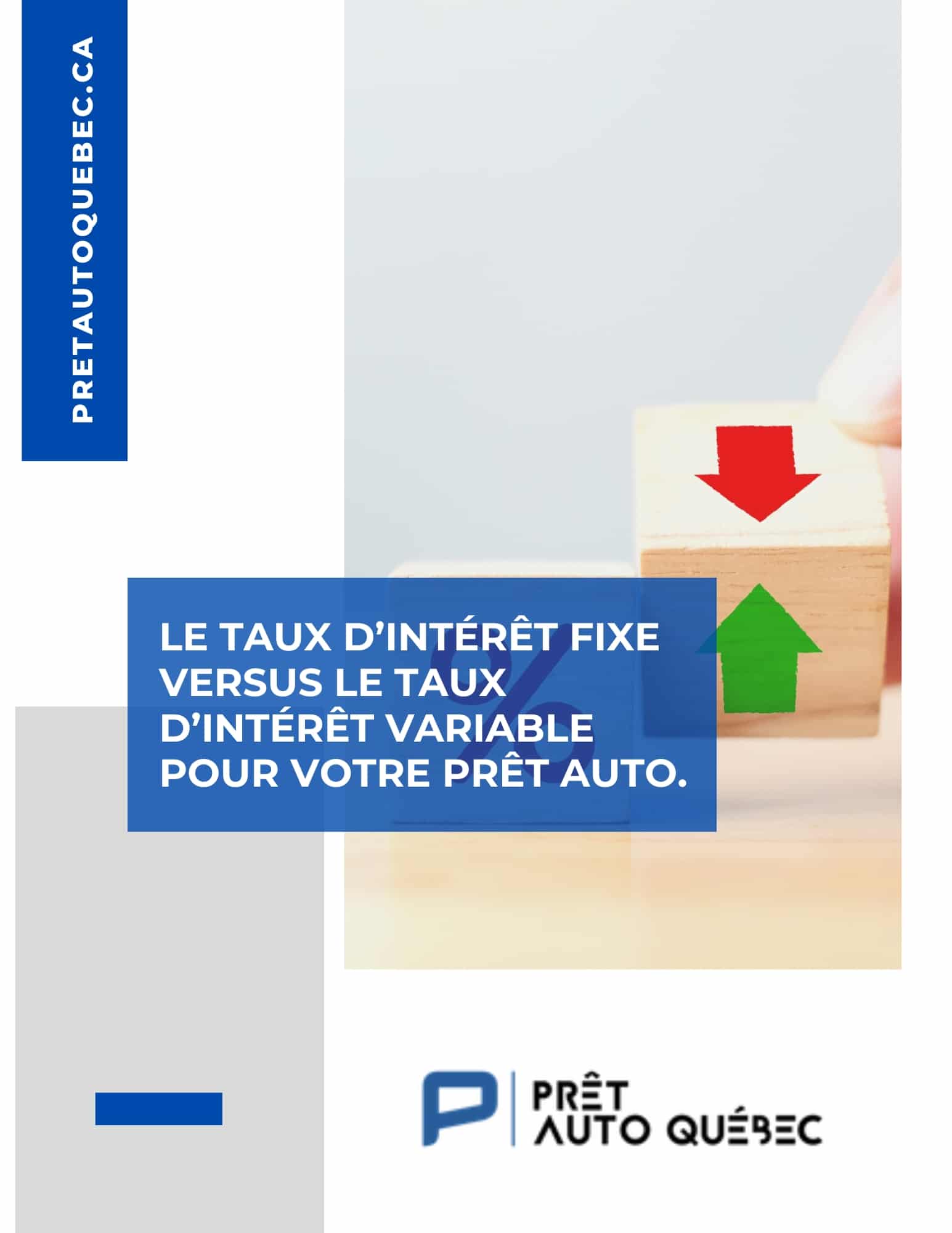Fixed rate versus variable rate auto loan.
18+
Partner financial institutions.
1000+

When it comes to choosing the type of interest rate for a car loan, there are several considerations to take into account. There are two main options available to borrowers: fixed interest rates and variable interest rates. Let’s look at the specific advantages and disadvantages associated with a fixed interest rate.
Advantages of a fixed interest rate:
- Financial stability: A fixed interest rate ensures consistent monthly payments throughout the term of the loan, providing reassuring budget stability.
- Cost predictability: Borrowers can accurately plan their monthly repayment amounts, regardless of fluctuations in the financial market.
Disadvantages of a fixed interest rate:
- Potentially higher initial cost: Fixed rates may initially be higher than variable rates, which can affect the total cost of the loan.
- Less responsive to rate cuts: If market rates decrease, borrowers keep their higher initial rate, thus losing the possibility of benefiting from lower rates.
Conclusion :
In conclusion, opting for a fixed interest rate has undeniable advantages in terms of stability and predictability of payments. However, borrowers should be aware of the potential higher initial costs and the lower responsiveness to rate cuts.
When it comes to financing a vehicle purchase, choosing between a fixed and variable interest rate can significantly impact the financial aspects of a car loan. We'll explore in detail the specific pros and cons associated with a variable interest rate, while also taking into account some important considerations related to its affordability.
Advantages of a variable interest rate for a car loan:
- Lower initial payments: Borrowers can benefit from lower initial monthly payments, making auto financing more affordable from the outset of the loan.
- Savings potential: If market rates decline, borrowers can benefit from reduced interest payments, leading to savings on the total cost of the loan.
Disadvantages of a variable interest rate for a car loan:
- Payment fluctuations: Monthly payments may increase if market rates increase, introducing budgetary uncertainty. Note that in car financing, most financial institutions will not increase your payment but will defer these increases to the end of your term. This means that you may have additional payments to make if the interest rate increases significantly.
- Risk of higher total cost: If interest rates increase significantly, the total cost of the loan may exceed that of a loan with an equivalent fixed rate.
- Non-universal offer: Not all financial institutions offer the variable interest rate. Access to this option may be restricted and often depends on the quality of the borrower's credit file.
- Credit condition: To obtain a variable interest rate, a good credit record is generally required, which means going through a conventional bank as a first chance (regular credit).
Conclusion :
In summary, a variable interest rate for a car loan offers benefits such as lower initial payments and the potential for savings if market rates decline. However, borrowers should be aware of possible fluctuations in payments, the risk associated with a potentially higher total cost, as well as the specific criteria required by some financial institutions to access this option.
Between the fixed interest rate and the variable interest rate, which of the two is historically known to be the most advantageous?
A conclusion on fixed interest rate and variable interest rate when applying for car financing.
Are you passionate about the automotive world and looking for expert advice on financing your next car? Join the Prêt Auto Québec family on Facebook and share your passion with us.
Whether you're looking for car financing advice, maintenance tips or just lively discussions about the latest models for sale, our Facebook page is the perfect place to connect with other enthusiasts.
By joining our family on Facebook, you will also have access to exclusive information, special offers and exciting events. It is an opportunity to stay connected, ask your questions and share your own discoveries with a community that shares the same passion as you.
So, what are you waiting for? Click on 'Join' and become part of the Prêt Auto Québec family on Facebook. Together, let's share the automobile road in a friendly and enriching atmosphere!
Get your car loan now.
We can help you.
To reach us by phone, dial:
info@www.pretautoquebec.ca
